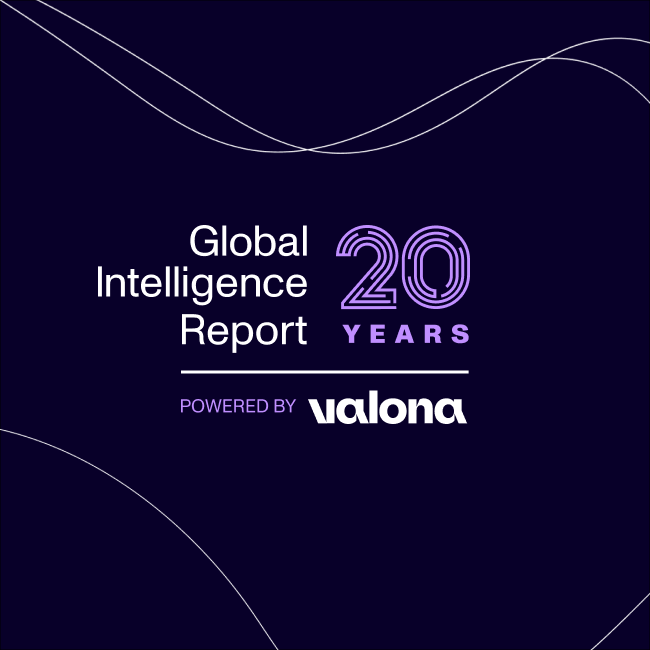
What does AI mean for market intelligence data analysis?
While AI transforms the way we access data and insights, its impact goes beyond simply algorithmic prowess. Organizations encounter challenges and opportunities that underscore the intricate interplay between human judgment and technological advancement.
What does AI mean for market intelligence in 2024? Learn how AI is changing data accessibility and insights generation as organizations navigate new challenges and opportunities.
AI has enhanced data access and analysis
Market intelligence (MI) can work hand-in-hand with AI. It can improve data analysis and decision-making processes.
In market intelligence, the advent of AI has enhanced data access and analysis. AI facilitates quick access to real-time information, offering insights into industry trends and competitive landscapes. Moreover, AI tools streamline data summarization and analysis, alleviating the burden of manual data sifting and enabling deeper insights into market dynamics.
Despite AI’s capabilities, strategic decision-making remains deeply rooted in human judgment. While AI augments data accessibility and analysis, the significance of human oversight in selecting and curating data cannot be overstated. AI’s impact extends beyond mere data analysis—it fosters a cultural shift towards insight-driven decision-making within organizations. This shift emphasizes collaboration and elevates decision quality across departments.
A need for AI education, processes and customized AI solutions
Education and collaboration emerge as cornerstones for effective AI implementation in market intelligence. Building AI literacy is crucial, enabling professionals to understand AI’s capabilities, limitations, and ethical considerations. Organizations embark on continuous testing and exploration, driving innovation and improvement in AI-driven market intelligence solutions. Collaboration with data science teams and investment in technical infrastructure are pivotal for successful AI adoption.
Amidst the transition, professionals adapt to unlearn traditional approaches and embrace AI-powered MI. Empowerment through AI enables stakeholders to access independent insights and data, fostering organizational agility and informed decision-making. MI practices evolve from departmental functions to organizational themes, fostering data-driven cultures and enhancing efficiency.

As market intelligence practices evolve, customization and productization become key focal points. Scrutinizing AI solutions’ reliability and aligning with provider and customer expectations are essential for delivering impactful market insights. Generative AI improvements drive enhancements in conversational interactions and document summarization, further enriching market intelligence processes.
AI’s impact on market intelligence is transformative
As organizations embrace AI, ethical and reliability considerations come to the forefront. Ensuring the quality and credibility of data sources becomes paramount, prompting discussions on human oversight and validation. Companies are establishing AI ethics principles to navigate the complex landscape of AI usage responsibly and mitigate associated risks.
In essence, AI’s impact on market intelligence is transformative. It helps change the way decisions are made by using data, and shows how human knowledge and AI work together to shape market intelligence in the future.
5 surprising points about AI in market intelligence
These points reflect the complexities and considerations involved in leveraging AI for market intelligence and competitive analysis, highlighting both challenges and opportunities in the current landscape.
- Hallucination by algorithms: Algorithms may draw incorrect conclusions based on erroneous data, emphasizing the need for vigilant scrutiny and verification of AI-generated insights.
- Outsourcing processes, not thinking: Contrary to the misconception of outsourcing thinking to AI, the primary aim is to outsource certain processes and tasks while retaining human oversight and decision-making.
- Differentiated AI models: Not all generative AI models are the same, and understanding the specifics of training data and model architecture is crucial for evaluating the reliability and suitability of AI solutions for market intelligence.
- Expectation management: Managing expectations surrounding AI capabilities and understanding its role in enhancing operational processes is crucial for effective integration.
- Impact on organizations: Using AI in MI changes how businesses work, making them rethink their roles and processes to use AI insights and decision-making better.
Most importantly, AI can help you get relevant insights to decision-makers faster.
Are you interested in joining live conversations about the most pertinent topics in MI and CI? Join our newsletter community to be the first to hear about the latest industry insights and upcoming webinars and roundtables!




